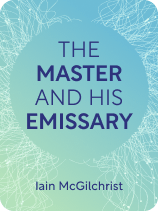

This article is an excerpt from the Shortform book guide to "The Master and His Emissary" by Iain McGilchrist. Shortform has the world's best summaries and analyses of books you should be reading.
Like this article? Sign up for a free trial here.
How can a brain injury impact someone’s ability to process and express emotion? How does looking at different types of art affect the brain?
Psychiatrist Iain McGilchrist argues that the right hemisphere is more important than the left—and that a failure to recognize this threatens to rob our lives of meaning and happiness. One reason why he believes this is that the right hemisphere is primarily responsible for processing and expressing emotions.
Continue reading to learn about McGilchrist’s important research into emotions and the brain.
Emotions and the Brain
To illustrate the right hemisphere’s role in processing emotions, McGilchrist examines the brain areas that are activated when we view art. For example, he notes that the left hemisphere is more activated when looking at abstract, emotionless paintings, while the right hemisphere is more activated by deeply emotive art. Similarly, McGilchrist points out that feelings of depression and melancholy are associated with excess right hemisphere activation, suggesting the right hemisphere plays a crucial role in processing those emotions.
McGilchrist’s exploration of emotions and the brain reveals further insights. In addition to processing emotions, the right hemisphere also helps us express emotions. For example, he asserts that the right hemisphere is responsible for producing instinctive facial expressions; patients with right hemisphere damage, therefore, lose the ability to convey their emotions through facial expressions.
(Shortform note: In My Stroke of Insight, neuroscientist Jill Bolte Taylor offers personal evidence from her left-hemisphere stroke that illustrates the role the right hemisphere plays in processing and expressing emotions. She maintains that, after losing her left-hemisphere function, it became obvious that the right hemisphere is the home of feelings like empathy and joy. However, her own personal account differs slightly from McGilchrist’s theoretical account in its view of the left hemisphere; rather than deeming it dispassionate, she contends that it’s the home of anger and judgment, traits that she left behind after the stroke.)
The Right Hemisphere’s Capacity for Empathy
Because of its superior ability to perceive emotions, McGilchrist asserts that only the right hemisphere has the capacity for empathy. He notes, for example, that specific regions in the brain’s right hemisphere are activated when we attempt to “put ourselves in others’ shoes,” a practice that requires empathy. Moreover, McGilchrist points out that patients who suffer from right hemisphere damage often lose the ability to empathize, while those with similar left hemisphere damage retain this ability.
(Shortform note: In addition to the individuals that McGilchrist cites who lost their capacity for empathy following right hemisphere damage, other individuals—psychopaths—have an innate inability to empathize. According to neurophysiological studies, these individuals typically suffer from hyperactive left hemispheres and less active right hemispheres, further supporting McGilchrist’s claim that the right hemisphere is necessary for empathy.)

———End of Preview———
Like what you just read? Read the rest of the world's best book summary and analysis of Iain McGilchrist's "The Master and His Emissary" at Shortform.
Here's what you'll find in our full The Master and His Emissary summary:
- How pop psychology has given us the wrong impressions of the brain's hemispheres
- Why the right hemisphere is actually more important than the left
- What would happen if left-hemisphere thinking took over the world






